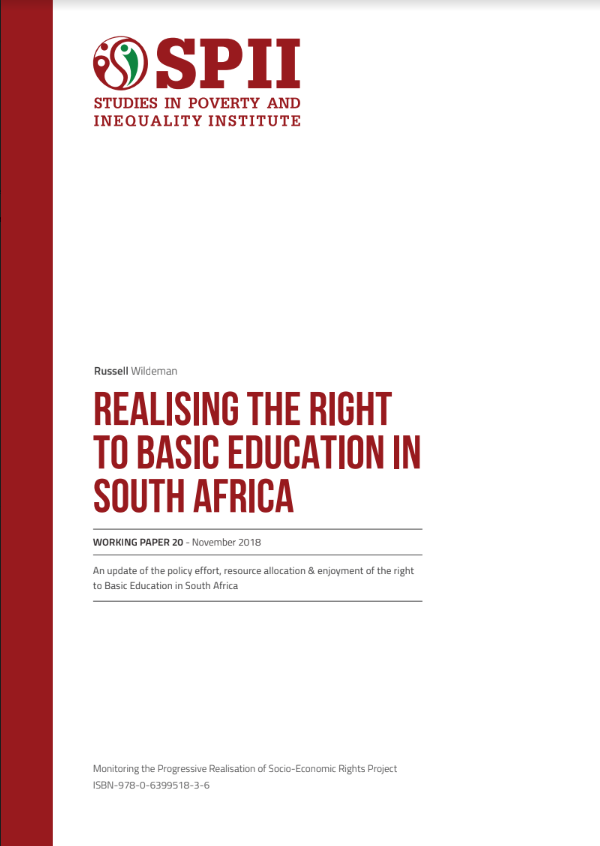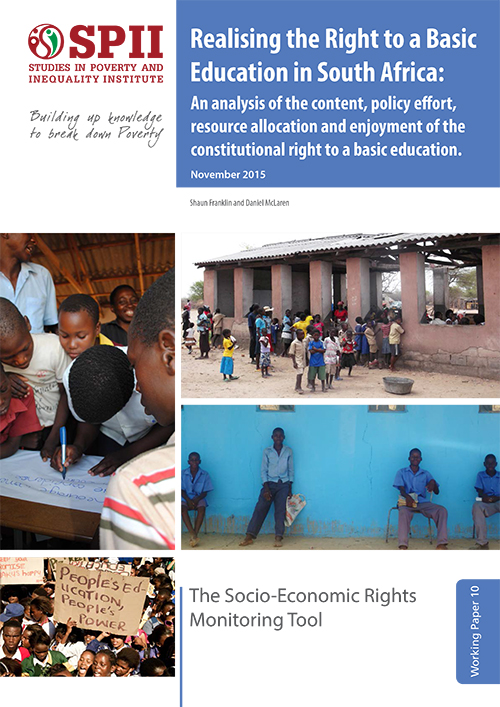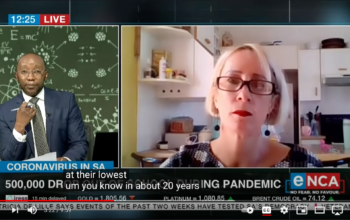Education
Realising The Right To Basic Education in South Africa

Studies in Poverty and Inequality Institute (SPII) is an independent research think-tank that focuses on generating new knowledge, information and analysis in the field of poverty and inequality studies. This working paper has been undertaken as part of the Socio-Economic Rights Monitoring Tool project conducted by SPII with the support of Ford Foundation, Foundation for Human Rights and in partnership with the South African Human Rights Commission (SAHRC).
The objective of this project, through the combination of policy and budget analysis and statistical indicators, is to provide a comprehensive framework and set of tools to monitor and guide the progressive
realisation of socio-economic rights. This includes investigating the manner in which policy making to expand access to socio-economic rights in fact aligns with Constitutional obligations and jurisprudential guidance handed down by the Constitutional Court.
This analysis of policy is complemented by an assessment of the resources directed towards the fulfilment of rights and the evaluation of indicators designed to assess realisation of rights over time. The project aims to provide useful tools for policy makers, those that exercise oversight over the executive, including Parliament, the DPME and Chapter Nine institutions (notably the SAHRC), public interest litigants, and broader civil society.
This work is funded by the Ford Foundation whose funding contribution to this research is gratefully acknowledged.













